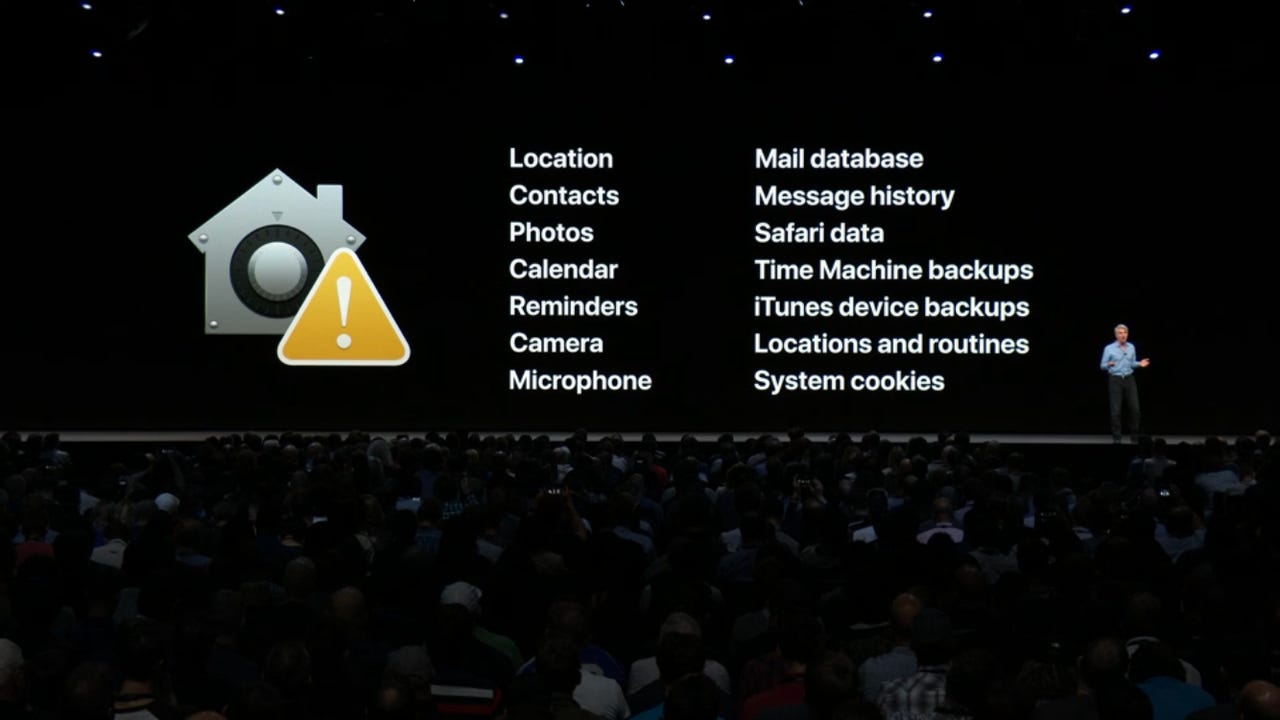Apple improves security protections in macOS Mojave


Apple executives converged in San Jose on Monday to show off the latest version of the Mac operating system to its gaggle of eager developers.
Breaking from its high country nomenclature, Apple has titled its new operating system macOS Mojave, and it aims to merge popular iOS features with the Mac ecosystem, clean up the desktop view, and improve security protections.
On the security front, macOS Mojave does more to keep users' private data private. For starters, Apple's protections that check with users before granting app access are extending to the camera and microphone, as well as to sensitive aspects of the file system such as mail, messages, and backups.
In enhancements to Safari's dramatic tracking detection, Apple is closing the loophole that let things like share buttons and comment fields track users automatically. Now, users will see a popup notification asking if they want to grant permission.
Mojave also makes it harder for trackers to create a unique fingerprint based on system information by only showing simplified system data. In effect, your Mac will look like everyone else's Mac, and it will be much harder for data companies -- including Facebook -- to identify and track you, Apple's software chief Craig Federighi said.
Other new features in Mojave include Dark Mode, a feature that Apple says makes photographic content pop off of the screen.
There's also the Dynamic Desktop feature, and a revamped Finder, and Desktop Stacks, which automatically arranges files on the desktop by tag, date, type, and more. Auto-organized and new files automatically go into their respective stacks.
Here's a condensed look at the rest of macOS Mojave:
- Redesigned Mac App Store with focus on curation, along with dedicated tabs for Discover, Create, Work, Play, and Develop. Video previews.
- Office 365, Panic Transmit, Barebones BB Edit, Lightroom CC are among the new developers bringing apps to Mac App Store.
- Metal for graphics: Brings speed-ups of 20 times using GPU instead of CPU.
- Create ML, a new tool to create machine learning tools without being a ML expert.
- Sneak peak at iOS apps being tested in Mac environments, beginning with Stocks, Apple News, Home.